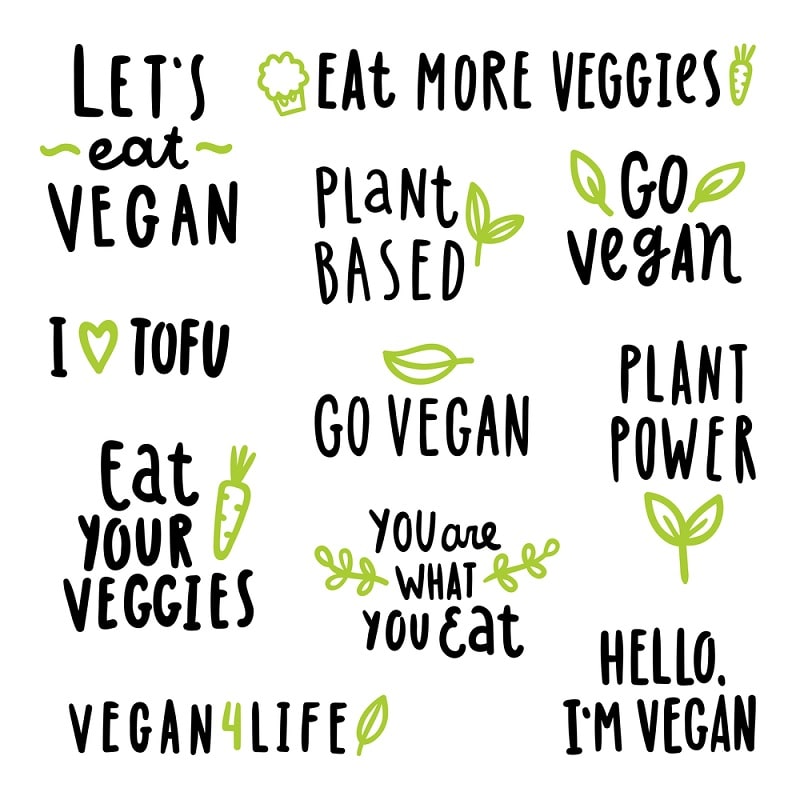Whether motivated by ethical reasons, seeking improved well-being, or craving culinary adventures, transitioning to a plant-based lifestyle can be a rewarding experience. But where do you start? This blog post will unveil five effective and practical ways to begin your plant-based diet in 2024.

1. Set Your Goals and Motivation
Setting goals and finding the right motivation are crucial steps in starting any new journey, including transitioning to a plant-based diet. Without clear objectives and strong driving forces, losing focus and giving up on your plant-based journey can be easy.
Determine Your “Why”
Before embarking on any new lifestyle change. It’s essential to identify why you want to make this change. This could be for health reasons, environmental sustainability, or wanting to try something new. Understanding your motivations will keep you committed when faced with challenges throughout your plant-based journey.
Set Realistic Goals
It’s important not to set yourself up for failure by creating unrealistic goals that are too difficult to achieve. Instead, start small and gradually work towards bigger changes as you become more comfortable with plant based diet. For example, you could start by committing to one meatless day per week or incorporating one new vegetable into each meal.
Make Them Specific
Vague goals like “eat healthier” or “lose weight” are difficult to achieve because they lack specificity. Instead, refine your goals by defining what it means to eat healthier: adding more fruits and vegetables or reducing the consumption of processed foods.
Make Them Measurable
Having measurable goals allows you to track your progress and celebrate milestones. For example, aim to try five new plant-based recipes every week or reduce your meat consumption by 50%.
Write Them Down
Writing down your goals can help solidify them and constantly remind you of what you are working towards. You could post them in a visible place, such as on your Android wallpaper or bathroom mirror, to keep yourself motivated.
2. Educate Yourself on Nutrition and Plant-Based Foods
Sometimes, people hesitate to try plant-based eating because they are still determining what foods they can eat and how to get all the necessary nutrients. Educating yourself on nutrition and vegetarian foods can ease any concerns and give you the confidence to make healthier food choices.
Here’s how to get started:
- Read books and articles: Experts write many informative books and articles. These resources can provide valuable information on transitioning to a plant-based diet, what nutrients to focus on, and tips for meal planning.
- Attend seminars or workshops: Look for local events or online seminars. These can be great opportunities to learn from experts, ask questions, and connect with others who are also interested in plant-based foods.
- Consult with a registered dietician: If you have specific dietary restrictions or health concerns, consulting with a registered dietician specializing in plant-based diets can be helpful. They can assess your eating habits and provide personalized recommendations.
3. Start Slowly and Make Gradual Changes
Deciding to switch to a plant-based diet can be intimidating, especially if you have been consuming animal products your whole life. However, it is important to remember that this journey does not have to happen overnight. Starting slowly and making gradual changes is often another vital step to take.
Understand Your Motivation
Before embarking on any new dietary change, it is crucial to understand your motivation for doing so. What sparked your interest in a plant-based diet? Is it for health reasons, ethical concerns, or environmental factors? Knowing your why will help keep you motivated and committed as you make changes.
Start with Meatless Meals
Another great way to adopt a plant-based diet is to replace meat with plant-based alternatives in some of your meals. For example, try replacing chicken with tofu in stir-fries or using beans instead of ground beef in tacos. This will allow you to experiment with new flavors and textures while enjoying familiar dishes.
Incorporate More Fruits and Vegetables
Plant-based diets are all about incorporating more whole, nutrient-dense foods into your meals. So start by adding healthy fruits and vegetables into each meal. Aim for at least 5 servings of fruits and vegetables daily – get creative with smoothies, salads, soups, and roasted veggies.
Listen to Your Body
As you change your diet, pay attention to how your body feels. Some people may experience digestive discomfort as they increase their intake of fiber-rich foods, so it’s important to listen to your body and adjust accordingly.
4. Incorporate Variety in Your Meals
Eating the same foods every day can become monotonous and may lead to disinterest in sticking to a plant-based lifestyle. Additionally, incorporating diverse foods ensures you receive all the necessary nutrients for optimal health.
Here are some tips on how you can incorporate variety into your meals:
- Explore Other Cooking: One way to add variety to your meals is by trying different cuisines worldwide. Thai, Indian, Mediterranean, and Mexican cuisines are known for their delicious and flavorful dishes. Experiment with new flavors and ingredients to keep your taste buds excited.
- Use Different Cooking Methods: Instead of always steaming or baking your vegetables, try roasting, grilling, or sautéing them for a different taste and texture. For a refreshing change, you can also try making raw dishes like salads or sushi rolls.
- Experiment with Different Grains and Legumes: Instead of relying on the same grains and legumes, try incorporating different ones into your meals. Quinoa, farro, lentils, and chickpeas are nutritious options that add variety to your diet.
5. Find Support and Resources
It is important to remember that making any lifestyle change takes time, effort, and support. If your previous plant-based attempts have failed, finding the right support and resources to help you restart your journey is crucial.
Here are some effective steps to find the resources and support you need:
Join Online Communities
The internet is a treasure trove of information, and connecting with like-minded people can be invaluable. Following online platforms like Quora, Facebook groups, or Reddit can provide a supportive place where you can ask questions, share recipes, and get helpful tips from others who are also following a diet based on plants.
Connect with Local Groups
Another great way to find support is by connecting with local groups in your area that promote plant based living. These could include vegan meet-up groups, cooking classes, or workshops. Not only will you get to meet new people. But you’ll also have access to valuable resources and knowledge about vegetarian diets in your community.
Conclusion
Starting a plant-based diet is easy, but with these 5 effective ways to jumpstart your journey, you’ll be on your way to a healthier and more sustainable lifestyle. Remember to begin small and make gradual changes, listen to your body, and don’t be afraid to experiment with new recipes and ingredients.

